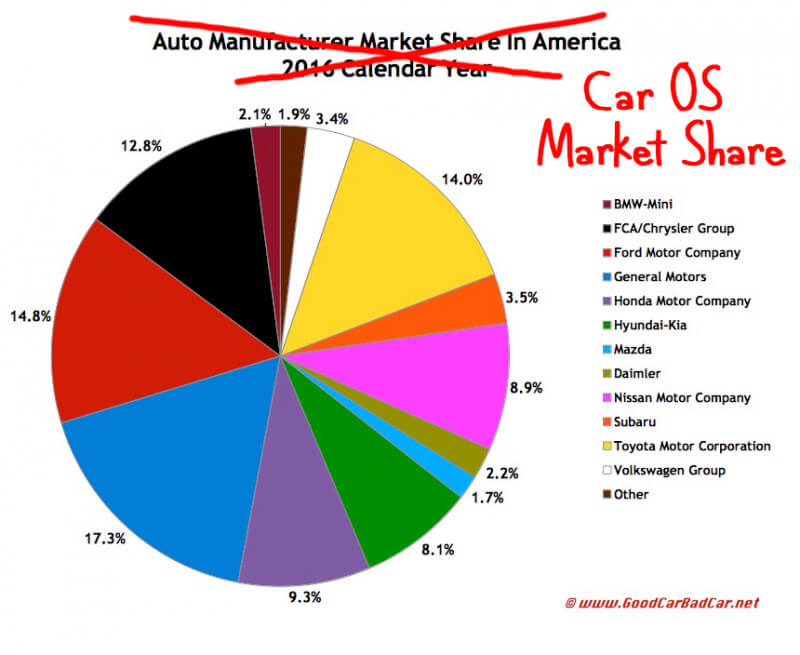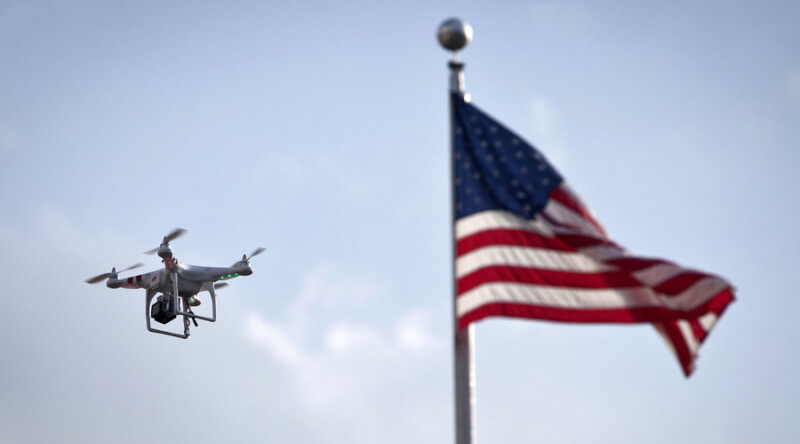Americans no longer have to register non-commercial drones with the FAA If you buy a new drone in the U.S. to fly non-commercially, you no longer have to register your drone with the Federal Aviation Administration, according to a decision issued today by a federal court in Washington, D.C. The court ruled that the FAA's drone registration rules, which have been in place since 2015, were in violation of a law passed by Congress in 2012. Recode
Kill Google AMP before it KILLS the web There's been a good deal of ongoing discussion about Google AMP - Accelerated Mobile Pages. Quite a few high-profile web developers have this year weighted in with criticism and some, following a Google conference dedicated to AMP, have cautioned users about diving in with both feet. These, in my view, don't go far enough in stating the problem and I feel this needs to be said very clearly: Google's AMP is bad - bad in a potentially web-destroying way. The Register
Almost all WannaCry victims were running Windows 7 One week after it first hit, researchers are getting a better handle on how the WannaCry ransomware spread so quickly --- and judging from the early figures, the story seems to be almost entirely about Windows 7. According to data released today by Kaspersky Lab, roughly 98 percent of the computers affected by the ransomware were running some version of Windows 7, with less than one in a thousand running Windows XP. 2008 R2 Server clients were also hit hard, making up just over 1 percent of infections. The Verge (also, French researchers find way to unlock WannaCry without ransom and WannaCrypt makes an easy case for Linux)
Panasonic recalls 280,000 tablet battery packs due to fire hazard Panasonic this week announced a voluntary recall of batteries due to fire and burn hazards. The battery packs being recalled were used in one of its rugged tablets. In total, the company is recalling 280 thousand battery packs, after over a dozen of them encountered critical failures. Panasonic has discovered that some of the hot-swappable battery packs used in some of its rugged Toughpad FZ-G1 tablets (Mk1, Mk2 and Mk3-series) can short circuit after a prolonged use in extreme temperatures. AnandTech
Net neutrality going down in flames as FCC votes to kill Title II rules The US Federal Communications Commission voted 2-1 today to start the process of eliminating net neutrality rules and the classification of home and mobile Internet service providers as common carriers under Title II of the Communications Act. The Notice of Proposed Rulemaking (NPRM) proposes eliminating the Title II classification and seeks comment on what, if anything, should replace the current net neutrality rules. But Chairman Ajit Pai is making no promises about reinstating the two-year-old net neutrality rules that forbid ISPs from blocking or throttling lawful Internet content or prioritizing content in exchange for payment. Ars Technica (also, One step closer to a closed internet)
The state of the car computer: Forget horsepower, we want megahertz! If I asked you "how many computing devices do you own?" your mind will probably first jump to your PCs and laptops at home, and then to your smartphones and tablets. The more tech savvy might include smartwatches, TVs, and video game systems. But there's one computing device that not many people think about as a computing device: the car infotainment system. Ars Technica

It's time for PC game demos to make a comeback I've been privately lamenting the lack of PC game demos lately. There was a time when demos were commonplace: a chunk of a brand new game you could try out for free before you bought the full game. Demos gave us a chance not only see what a game had to offer and whether or not we enjoyed it, but also allowed us to continually tweak the settings and try different graphics options to see how our PCs handled it. PC Gamer
All fossil-fuel vehicles will vanish in 8 years in twin 'death spiral' for big oil and big autos, says study that's shocking the industries No more petrol or diesel cars, buses, or trucks will be sold anywhere in the world within eight years. The entire market for land transport will switch to electrification, leading to a collapse of oil prices and the demise of the petroleum industry as we have known it for a century. Financial Post
"MP3 is dead" missed the real, much better story If you read the news, you may think the MP3 file format was recently officially "killed" somehow, and any remaining MP3 holdouts should all move to AAC now. These are all simple rewrites of Fraunhofer IIS' announcement that they're terminating the MP3 patent-licensing program. Very few people got it right. The others missed what happened last month: Marco Arment
Families will spend more than a third of summer staring at screens like zombies Summertime is almost here, meaning families will begin spending more time outdoors enjoying nature, right? Not necessarily. In modern times, devices seem to rule our attention. Things like computer monitors, televisions, smartphones, and tablets keep our eyes focused on screens like zombies. BetaNews
Monoprice releases their Mini Delta printer (on Indiegogo) Around this time last year, Monoprice quietly unveiled a small, $200 3D printer. At the time, a fully functioning printer at this price point wasn't unheard of. A good 3D printer at this price point was. It turned out this printer was actually fantastic and completely changed the value proposition of desktop 3D printers. Hackaday
Researchers grow brain cells on a chip Every human thought starts with a signal traveling from one neuron to another in the brain. Yet we know relatively little about how these connections form. In an effort to watch that process unfold, Australian researchers engineered a nanowire scaffold on a semiconductor chip that enables brain cells to grow and form circuits. The scientists described their device recently in the journal Nano Letters. IEEE Spectrum
Self-driving cars have a bicycle problem Robotic cars are great at monitoring other cars, and they're getting better at noticing pedestrians, squirrels, and birds. The main challenge, though, is posed by the lightest, quietest, swerviest vehicles on the road. "Bicycles are probably the most difficult detection problem that autonomous vehicle systems face," says UC Berkeley research engineer Steven Shladover. IEEE Spectrum
